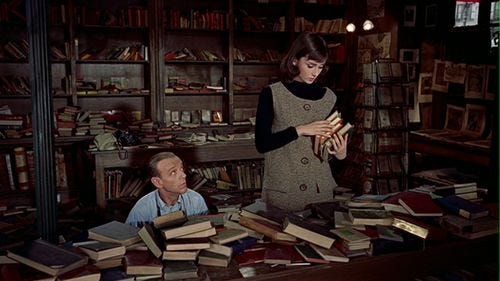the cool girl books phenomenon
postcard 29: on contemporary literary fiction, the aestheticization and tropification of reading, and 'cool girl books'
"What if life is just a collection of essentially unrelated experiences? Why does one thing have to follow meaningfully from another?"
prelude
How, I wondered, might a person, a people, take root, roots and rootlessness, the preservation of what little remains of the past, such were thoughts that blew through me on any given morning, standing very still in the porch, or in the garden, in my bare feet, feeling suddenly: that sound, that rushing, it is the wind, it is the trees!
—Study For Obedience, Sarah Bernstein
I read a lot of articles. Most of them are good, and some of them are excellent—so excellent that they linger in my mind, and I end up going back to them time and again. Some that are in this category include:
The Plight of the Eldest Daughter by Sarah Sloat
Periwinkle, the Color of Poison, Modernism, and Dusk by Katy Kelleher
The Joy of Sulk by Rebecca Roache
In Dark Times, I Sought Out the Turmoil of Caravaggio’s Paintings by Teju Cole
Remembering Laika, Space Dog and Soviet Hero by Alex Wellerstein
If you asked me to rank my favorite reads—books and articles alike in one list, these would all make my top ten. Longform articles often get left in the dust because they’re not quite a normal ‘news article’ but not a published physical book copy either, but I think reading a good article is like feeding your brain.
A very small number of articles stay in my mind simply because of how much they frustrate me. I like opinion pieces because I like reading people’s thoughts and thinking about my stance and position on them, even if I ultimately disagree with the author. However, one article lingers in my mind and I want to talk about it because I do think it fits with the ongoing discourse of the “literary it girl” or “cool girl books”. Perhaps talking about it is like beating a dead horse because this discourse has been talked about and dissected into oblivion, but I still want offer my two cents.




